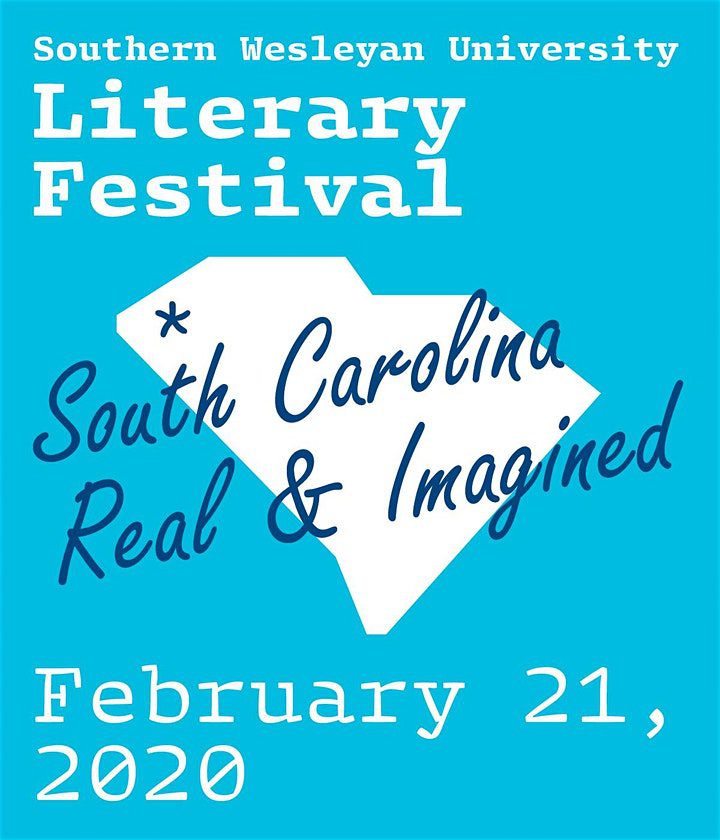Southern Wesleyan University will host a literary festival on February 21, 2020 titled “South Carolina Real and Imagined” that will feature jury-selected student writers from high schools and universities as well as talks by two published writers and other events. SC Humanities supported this program with a Fast Track Literary Grant.
Jury-selected student writers from local high schools and universities will present poetry, fiction, and creative non-fiction set in or focused on South Carolina.
The one-day day event will also feature talks by novelist Mark Sibley-Jones and SWU professor and poet Chad Chisholm as well as creative writing breakout sessions and an open mic event.
John Mark Sibley-Jones teaches English at the South Carolina Governor’s School for the Arts and Humanities in Greenville. Prior to moving to Greenville, he taught English literature for fifteen years at the University of South Carolina, where he won several teaching awards, including the Michael A. Hill Outstanding Honors Faculty Award. Sibley-Jones has published more than fifty academic and professional articles and two short stories. He has been a finalist in several national fiction competitions. By the Red Glare is his first novel.
Basil Chad Chisholm is Professor of English and Media Communication at Southern Wesleyan University in South Carolina, where he specializes in the study of rhetoric, composition, and language. Dr. Chisholm has authored Images of America: Clinton 1940-1980, as well as many essays.
“South Carolina Real and Imagined” will take place on Friday, February 21 from 9:00 a.m. – 1:30 p.m. at the Southern Wesleyan University, 907 Wesleyan Drive, Central, SC 29630. Registration is free and is available online at: https://www.eventbrite.com/e/swu-literary-festival-tickets-89300089973.
The mission of SC Humanities is to enrich the cultural and intellectual lives of all South Carolinians. Established in 1973, this 501(c) 3 organization is governed by a volunteer 21-member Board of Directors comprised of community leaders from throughout the state. It presents and/or supports literary initiatives, lectures, exhibits, festivals, publications, oral history projects, videos and other humanities-based experiences that directly or indirectly reach more than 250,000 citizens annually.
